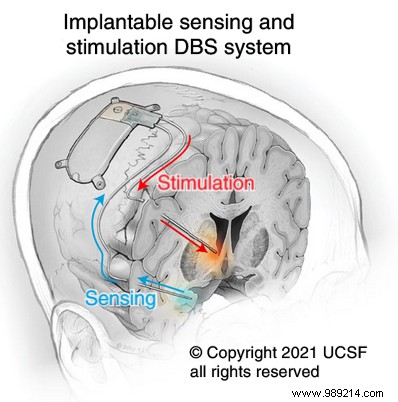In the UK, an amazing experiment took place. A woman suffering from severe depression was treated using an electrical brain implant. This method could eventually replace drug treatments that prove to be ineffective for some people.
Depression is constantly the subject of scientific research. Recently, a US study concluded that low-dose laughing gas (or nitrous oxide) could be used as a treatment. However, this product generally used as an anesthetic is also the subject of misuse – for recreational purposes – among young people.
In an article from October 4, 2021, the British daily The Guardian gave details of an amazing experience involving a 36-year-old patient with severe depression. She underwent therapy via an electric brain implant which spontaneously turned out to be a success. The results of the experiment were published in the journal Nature Medicine .
“When I received the first stimulation, I felt the most intensely joyful sensation and my depression was a distant nightmare for a while. It was the first time I laughed or smiled spontaneously in five years,” said the patient.

In reality, we are talking about not one, but two implants. The first made it possible to define the area of the brain responsible the patient's depression:the ventral striatum, located in the amygdala. The latter plays a role in motivation and the management of pain and scarring. However, the ventral striatum seemed to react instantaneously to electrical stimulation. The second implant was used to detect the arrival of the "signature of depression" in the amygdala, before automatically sending stimulation to the ventral striatum.
According to the researchers, this kind of therapy would only be suitable for people affected by a serious mental disorder . However, this experiment represents a very important advance in the knowledge of the brain function affected by mental illness. It must be said that in the United Kingdom, between 10 and 30% of people who suffer from depression do not respond to prescribed drug treatments, potentially close to three million people.
In the meantime, seriously ill people can be reassured. The patient who participated in the experiment now knows that it is a disorder that can be treated and not some kind of moral failing. For the latter, therapy marks a real turning point in her life. Until now, she only noticed the darker sides of our world.